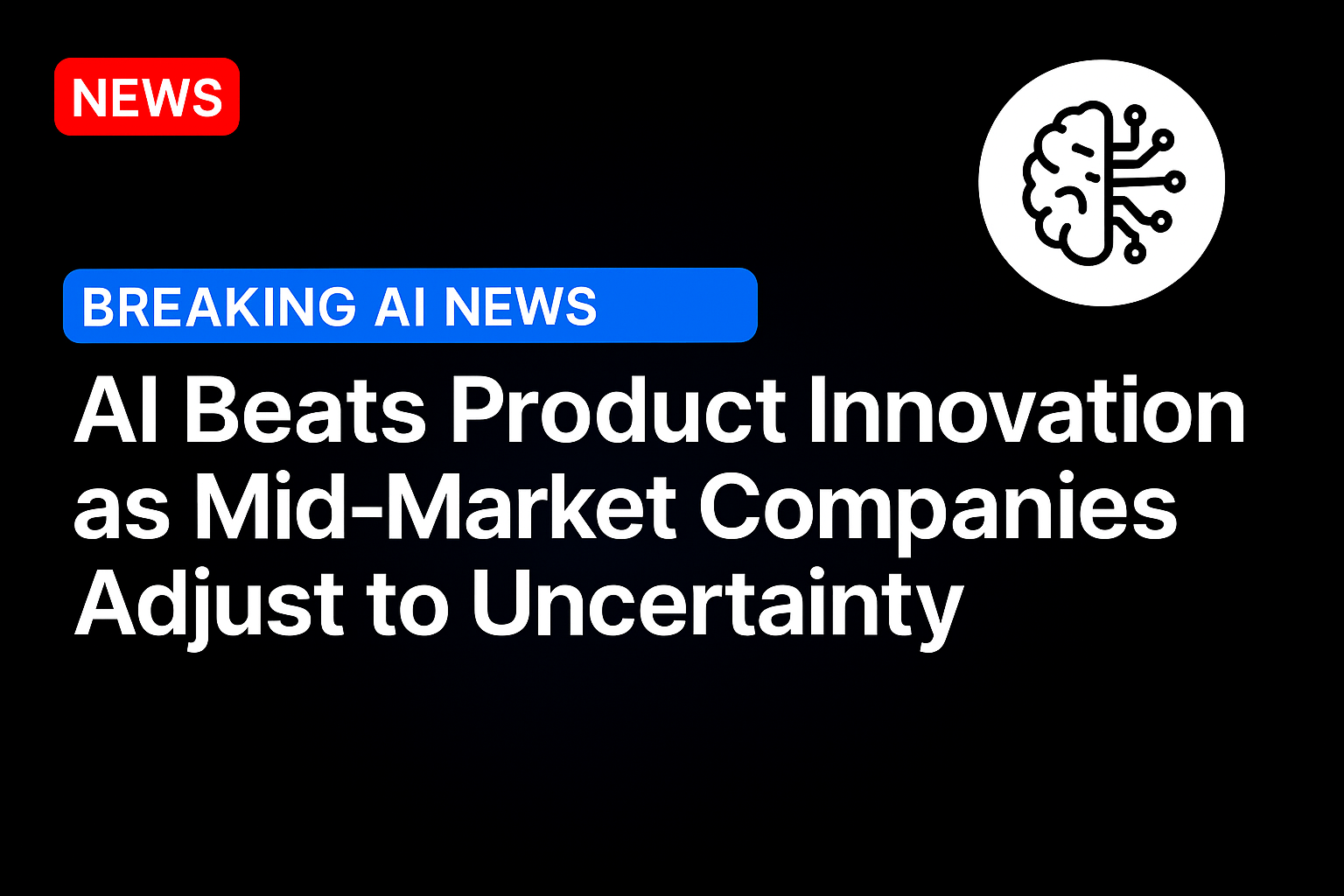America’s often-overlooked engine of commerce, the middle-market business landscape, is shifting its innovation experiments down the priority list.
The biggest reason? Trade policies, geopolitical scuffles and economic volatility are, and have been for months, hammering mid-market firms’ supply chains and margins, leaving little room for anything but a dedication to unlocking efficiency.
The latest findings from the PYMNTS Intelligence Uncertainty Project’s May 2025 edition reveal that 100% of mid-market U.S. goods and retail firms report experiencing direct impacts from tariff volatility.
Around 4 in 10 of companies (38%) surveyed tell PYMNTS Intelligence that they have delayed, canceled or reworked product launches or market strategies due to current economic volatility.
But while the threat may seem external and policy-driven, the strategic responses are increasingly inward-looking and algorithmic. According to the recent PYMNTS Intelligence report, nearly two-thirds (63%) of surveyed mid-market companies are accelerating AI adoption with a sharp focus on supply chain optimization, cost control, and, in some cases, workforce reduction.
The age of breakthrough products, it appears, could end up being sidelined by the age of operational intelligence.
Why Tariffs Are Spurring a Mid-Market Reprioritization
Though tariffs have been a policy tool for decades, the most recent period has seen a particularly destabilizing use of them, with tariffs often announced absent predictable patterns or long-term clarity. This sudden imposition or threat of trade restrictions has left procurement teams scrambling and CFOs revising margin forecasts quarterly.
It is against this backdrop that mid-market firms are no longer thinking of artificial intelligence (AI) as futuristic. The technology is now foundational to both their future growth plans, as well as their survival in the present.
The lion’s share of AI deployment, per the PYMNTS Intelligence report, is not consumer-facing. Instead, the digital transformation happening in less glamorous, but possibly more critical, corners of the business: demand forecasting, vendor performance analytics, dynamic pricing, transportation routing and real-time inventory optimization.
These technologies were once the domain of Fortune 500 giants. Today, thanks to cloud-based platforms and lower implementation barriers, mid-market firms have more access to AI tools.
Layer in inflationary pressure on domestic goods, and you get a market where adaptability is king. In that context, optimization is critical. Still, this pivot isn’t without risk. With so much attention on operational survival, companies may be inadvertently starving their innovation pipelines.
Some firms are trying to do both. But the balance is precarious. About 31% of firms say tariff volatility has restricted their ability to fund AI initiatives at all, let alone in tandem with traditional innovation.
Read more: What Uncertainty Means: US Goods Firms Retool Product Plans Amid Tariffs
The New Mid-Market Playbook
Until recently, product teams in mid-sized firms were laser-focused on market differentiation. A better product, a bolder feature, a faster launch; that was the mantra. Now, leaders are re-architecting their playbooks.
What does the next phase look like? For many mid-market firms, the playbook is increasingly centered on resilience over risk. Product launches are vetted through cost-benefit simulations. Market expansions are paused unless AI-validated demand signals are strong. Operations are being hardened with real-time insights and predictive alerts.
The new mid-market mantra is becoming clear: optimize first, innovate second.
Yet within this conservative framework, there is space for optimism. AI is helping companies do more with less, turn volatility into insight and transform complexity into competitive advantage.
It’s too soon to know if this strategy shift will make firms more resilient in the long run. But in today’s uncertain world, mid-market leaders are betting that AI-powered adaptability beats ambition without stability.
As the tools mature and their ROI becomes clearer, we may see a reemergence of bold ideas, only this time, powered by data and not just instinct.
Source: https://www.pymnts.com/


